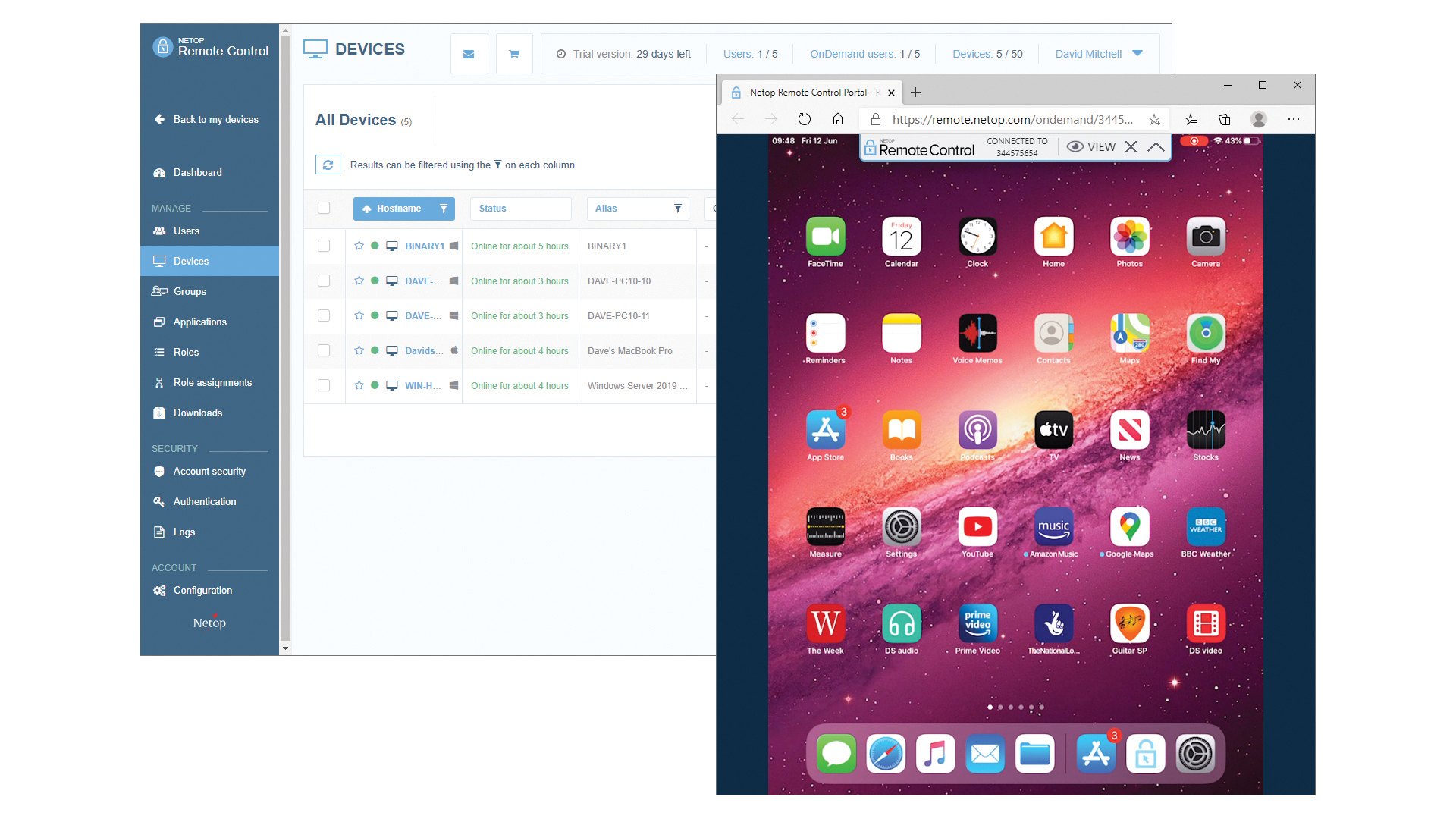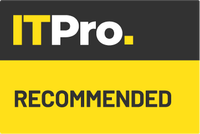Netop Remote Control 12.82 review: The best of both worlds
A flexible hybrid remote support suite that will suit businesses seeking a comprehensive solution


-
+
Easy-to-use, secure software
-
+
Cloud-based and on-premises support
-
-
Extra work required to support Mac users

Torn between cloud-hosted and on-premises support? With Netop’s Remote Control you don’t need to choose one or the other. An annual subscription enables cloud-based support, which can be easily combined with on-premises services by adding a perpetual licence.
If you’ve encountered the software before, you’ll note some new features in this latest version, including email notifications for connection attempts, 64-bit macOS and Linux agents, plus improved screen scaling for the browser-based client. There’s also a new optional add-on called Netop OnDemand, which supports on-demand connections and makes it possible to access iOS devices.
What hasn’t changed is Netop’s tough security measures. All sessions are 256-bit AES encrypted, and host installation packages can also be customised to only allow specific features, with multi-factor authentication optionally enforced. Once a connection is made, there are strict limits to what technicians can do: permissions can be granted on a per-user and per-group basis, or you can define and assign roles to restrict activities such as keyboard and mouse control, chat and file transfer.
Getting the agent onto Windows systems is a breeze. The web portal allows you to download the client installer directly or email a link to selected users; once the client has loaded, it provides always-on remote access, asking the user to explicitly permit connections when their device is unattended.
Mac users can be supported too, but setting this up involves some extra legwork, as the Netop host DMG package must be manually installed on each host. We also had to manually edit the host configuration file to add the Netop portal web address and account enrolment key. With this done, everything worked as expected.
When it’s time to start a remote session, support staff have the option of using a simple browser-based console, which provides basic remote control plus options to lock, restart or shut down the host. However, it’s the work of a few moments to download and install the full Netop Guest app: this can then be launched directly from the portal, giving you access to the complete range of features. Along with remote control, its ribbon menu offers file transfer, messaging, text and audio chat, remote command and application execution, Registry editing, plus keyboard and mouse controls. There’s also a Demonstrate tool that lets technicians share their screen with the host.
Since the Guest app connects to your portal account, you can also see and access all registered hosts from within its interface. If you’ve paid for an on-site installation, you’ll see a LAN connection profile within the Guest app too, allowing you to access hosts on the same network without going through the web portal.
While on-demand support isn’t included as standard, you can add it via the Netop OnDemand service, which costs £187 per technician per year. This snaps neatly into the web portal and lets you set up quick remote sessions with users who don’t have the Netop host software installed, protecting each session with a unique nine-digit code.
OnDemand also allows technicians to connect to iOS devices, once the user has installed the iOS app and entered the requisite security code. As usual, Apple’s strict security model means you can’t take remote control of an iOS device, but the app allows a technician to view its entire screen and guide the user through problem-solving steps.
Businesses with evolving needs will appreciate how Netop Remote Control gives you the freedom to choose cloud-based, local and hybrid support. It would be nice if Mac deployment were slicker, but once everything’s in place, the software is easy to use, well stocked with features, and reassuringly secure.
Get the ITPro daily newsletter
Sign up today and you will receive a free copy of our Future Focus 2025 report - the leading guidance on AI, cybersecurity and other IT challenges as per 700+ senior executives
Dave is an IT consultant and freelance journalist specialising in hands-on reviews of computer networking products covering all market sectors from small businesses to enterprises. Founder of Binary Testing Ltd – the UK’s premier independent network testing laboratory - Dave has over 45 years of experience in the IT industry.
Dave has produced many thousands of in-depth business networking product reviews from his lab which have been reproduced globally. Writing for ITPro and its sister title, PC Pro, he covers all areas of business IT infrastructure, including servers, storage, network security, data protection, cloud, infrastructure and services.
-
 ‘Phishing kits are a force multiplier': Cheap cyber crime kits can be bought on the dark web for less than $25 – and experts warn it’s lowering the barrier of entry for amateur hackers
‘Phishing kits are a force multiplier': Cheap cyber crime kits can be bought on the dark web for less than $25 – and experts warn it’s lowering the barrier of entry for amateur hackersNews Research from NordVPN shows phishing kits are now widely available on the dark web and via messaging apps like Telegram, and are often selling for less than $25.
By Emma Woollacott Published
-
 Redis unveils new tools for developers working on AI applications
Redis unveils new tools for developers working on AI applicationsNews Redis has announced new tools aimed at making it easier for AI developers to build applications and optimize large language model (LLM) outputs.
By Ross Kelly Published
-
 Google layoffs continue with "hundreds" cut from Chrome, Android, and Pixel teams
Google layoffs continue with "hundreds" cut from Chrome, Android, and Pixel teamsNews The tech giant's efficiency drive enters a third year with devices teams the latest target
By Bobby Hellard Published